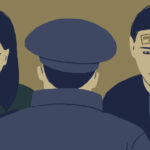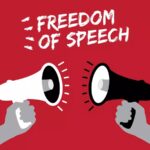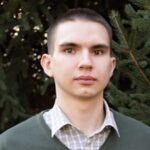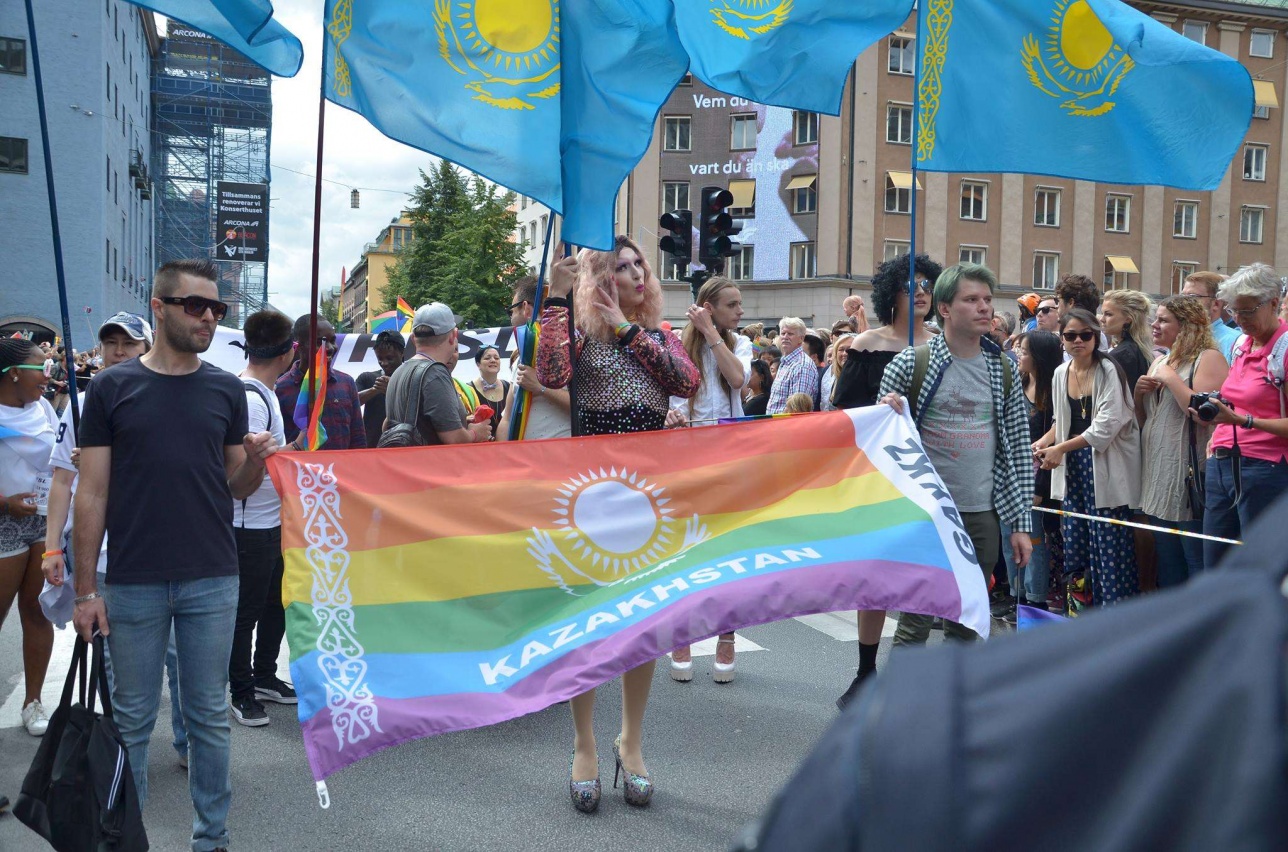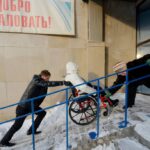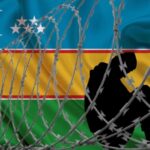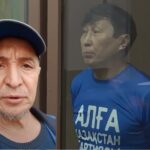About 20 police officers, Prosecutor’s Office officials and Education Department officials raided a church-run children’s summer camp near Kazakhstan’s commercial capital Almaty on 30 July. Officials frightened the children and “behaved like they were detaining some criminals”, Pastor Sergei Li of Kapshagai Baptist Church told Forum 18 News Service. Police questioned children without their parents, as well as others, from morning until late in the evening. “One seven-year old girl was frightened and cried, and after that I told them to stop questioning the children”, Pastor Li stated. Lieutenant Colonel Bayken Shalkarov, Deputy Head of Kapshagai Police, claimed to Forum 18 that “the Church taught children religion in violation of the Law”. He refused to say why police questioned frightened young children without their parents for many hours. He said police are preparing administrative prosecutions, but refused to say for what “offence”. Asem Suttibayeva of Kapshagai Education Department told Forum 18 that law-enforcement agencies required educational psychologists from her Department to participate in the raid. Asked why Almaty TV channel and its subsidiary Almaty News attacked the Baptist Church without a right of reply and to the distress of members, Deputy Chief Editor Tatyana Lisitskaya responded: “The authorities gave us the materials for broadcast.”
About 20 officials, including police and Prosecutor’s Office officials, raided a church-run children’s camp in Almaty Region near Kazakhstan’s commercial capital on 30 July, camp organisers have told Forum 18 News Service. “Officials questioned the minors without the presence of their parents,” Pastor Sergei Li of Kapshagai Baptist Church told Forum 18 on 10 August. “One seven-year old girl was frightened and cried, and after that I told them to stop questioning the children.” Police questioning of children and organisers lasted from morning until late evening.
Asked why police and other authorities questioned children in the absence of their parents and frightened them, Lieutenant Colonel Bayken Shalkarov, Deputy Head of Kapshagai Police, refused to answer. “I will not answer you, send your official letter to us.”, he told Forum 18 on 10 August before putting the phone down.
After the raid the authorities then handed materials – including video footage – to the local electronic media alleging that the camp organisers were teaching religion “illegally” (including by foreign citizens) and without the knowledge of parents, and were using suspicious drinks and chewing gum. The media included these claims in television broadcasts and online reports, to the outrage and distress of church members.
Several parents, including church member Nadezhda Kogay (who was in the camp when it was raided), told Forum 18 that they were “fully satisfied with the Church” over the conduct of the camp, and that “they gave their permission for giving their children the English lessons”.
The authorities decided not to bring criminal charges against any of the organisers, but insist they will bring administrative charges. They refused to explain to Forum 18 what charges will be brought.
Harsh controls
The raid on the children’s camp came as the National Security Committee (KNB) secret police and the local administration forcibly closed a Muslim prayer room at a market in the southern city of Shymkent. And a member of a Baptist Church which meets for worship without state permission has been fined again, this time for refusing to pay earlier fines for meeting for worship without state registration (see forthcoming F18News article).
Kazakhstan imposes harsh controls on all exercise of the right to freedom of religion or belief. Only religious communities which want to and have been able to gain state registration are allowed to exist. Even registered religious communities face severe restrictions, including on where they may hold religious events. Religious literature is also under tight state restrictions, which include prior compulsory censorship of all published or imported materials and a licensing system for where approved religious literature can be sold or distributed (see Forum 18’s Kazakhstan religious freedom survey http://www.forum18.org/archive.php?article_id=1939).
Religious communities can be punished if children are present at religious events without the specific written permission of their parents. Foreigners are not allowed to exercise freedom of religion or belief unless they are invited by a registered religious community and have personal state permission to do so. Religious communities the government does not like are intermittently subjected to attacks through the media, often using material provided by officials (see Forum 18’s Kazakhstan religious freedom survey http://www.forum18.org/archive.php?article_id=1939).
Raid
The approximately 20 officials of Kapshagai City Prosecutor’s Office and Police, accompanied by educational psychologists, raided the children’s camp on the morning of 30 July. The camp, held in the Altyn Emel (Golden seat) resort, began on 28 July and was due to finish in the morning of 31 July. It was organised by the state-registered Kapshagai Baptist Church, a member congregation of Kazakhstan’s Baptist Union.
After the officials raided all the rooms, in which were various age groups of children, they “pounded on the doors with such force that the children became nervous and frightened,” Pastor Li stated. “The officials continued speaking very loudly, and broke into the bigger hall, where there was also a lesson for children. They behaved like they were detaining some criminals.”
The officials also “filmed everything without or permission” and disrupted the programme for the whole day. “They also questioned our Church ministers until late in the evening.”
Police then confiscated “all the material – posters, signs, and other study materials from the walls, as well as all the presents and prizes.” Pastor Li added that among the confiscated materials were “no religious books or printed materials, but just posters made by the children for learning English based on stories from the Bible.”
What “offences”, what charges?
Kapshagai Police told Pastor Li in early August that “at first they planned to open a criminal case but then they decided that an administrative case will be opened for illegally teaching children religion”, he told Forum 18.
Lieutenant Colonel Shalkarov of Kapshagai Police claimed that “the Church taught children religion in violation of the Law,”. Asked exactly what charges are being brought, Shalkarov stated that it “will be an administrative case.” But he refused to say what “offences” the charges would relate to. When Forum 18 insisted, he replied: “We are waiting for the religious expert analysis of the confiscated materials, and within fifteen days we will decide what charges.”
Religious “expert” analyses are generally conducted by state religious affairs officials. They form part of the system of state religious censorship, and are used to provide “evidence” to punish those who distribute religious materials which have not been censored by the state (see Forum 18’s Kazakhstan religious freedom survey http://www.forum18.org/archive.php?article_id=1939).
Told that the Church says there were no religious books, booklets, or other materials but only posters made by the children, Shalkarov did not answer. Nor did he respond when asked what is wrong with teaching children Bible stories, and why a registered Church cannot teach children of their own members and other children with the permission of their parents.
Media use police material to attack Church
Apparently citing information and using film provided by the police, several local television channels and electronic media between 4 and 5 August attacked the Baptist Church. Almaty TV channel and its electronic subsidiary Almaty News broadcast and posted materials on 4 August alleging that “foreigners illegally organised a Bible camp for children in Kapshagai”. The “law-enforcement authorities detained representatives of the Evangelical Christian Baptist Church, and charged them for illegally engaging under-age children in religious activity.”
Police “detained South Korean and American citizens who had, under the guise of free English courses, arranged a Bible camp without special [state] permission. The active members of the sect propagated their religious views to the children, conducted worship services and gave out religious literature,” the channel claimed. And it added: “In the place were found bottles of suspicious liquids and chewing gum of an unknown source. And all of this the organisers gave [for consumption] to the children.”
“It was found that the parents did not know about the religious element in the study course,” Almaty News claimed. “The liquids and chewing gum will undergo forensic examination, and the confiscated religious materials will undergo religious expert analysis,” it quoted police as declaring.
Pastor Li objected to the allegations. “All the parents knew very well that the children will be taught on the basis of the Bible and they also gave their written permission,” he told Forum 18. All the parents are Church members, except one woman who is not a member but started attending the Church recently, he added. “She also gave her written permission.”
Pastor Li noted that the foreigners who had been helping with the camp were not obstructed from leaving the country. Police had returned their passports to them after questioning on 30 July.
About the liquid mentioned by the media, Pastor Li explained that it was “coolade prepared by the organisers for the children as cool drinks, since the weather is hot, and it was also used as an aid about how Jesus turned water into wine in the Bible.” He said the sticks of chewing gum were to be given to children as prizes for their activities.
In the criminal case against retired Presbyterian Pastor Bakhytzhan Kashkumbayev in the capital Astana, police alleged in October 2012 that his Grace Church used “hallucinogens”. The Church insisted the red tea they used as a non-alcoholic communion wine was a product widely available locally and rejected police claims as a deliberate smear (see F18News 19 October 2012 http://www.forum18.org/Archive.php?article_id=1756).
Education Department denies media allegations
In its reporting of the raid on the children’s camp, Almaty News quoted Asem Suttibayeva, Head of Kapshagai City Education Department, as declaring that “without a special certificate, no one in Kazakhstan has the right to teach religion, and particularly to under-age children.”
Suttibayeva adamantly denied that she spoke against the Baptists. “I only told the media that the Baptist Church is not registered with us as an educational institution,” she told Forum 18 on 11 August. “I didn’t tell them that the Church can’t teach their children religion or that they have to have our Department’s permission for that. The media took my words out of context.”
Suttibayeva also told Forum 18 that she did not personally participate in the raid, but the law-enforcement agencies required educational psychologists from her Department to participate.
“The authorities gave us the materials for broadcast”
Asked by Forum 18 on 10 August why Almaty TV channel and its subsidiary Almaty News attacked the Baptist Church, Tatyana Lisitskaya, Deputy Chief Editor, responded: “The authorities gave us the materials for broadcast.”
Asked why the channel gave the Baptist Church members no chance to respond to the official allegations, she stated: “There were statements of the Church members in the video material, but we cut them out because we didn’t think them necessary.” Asked whether she does not think it is an organised campaign of slander against the Church, Lisitskaya replied: “I am not going to evaluate the actions of the authorities.” She then refused to speak further to Forum 18.
Media attacks have often been used by the authorities to incite hostility against people exercising freedom of religion or belief (see Forum 18’s Kazakhstan religious freedom survey http://www.forum18.org/archive.php?article_id=1939).
Another TV channel also attacks Church
On 5 August Eurasia TV channel also attacked the Church during its main evening news. It made similar claims against the Baptist Church about “suspicious” drinks and chewing gum given to children, as well as alleging that the Church “illegally” organised a Bible camp.
The channel included an interview with Yuliya Denisenko, head of a state-sponsored “anti-sect” centre, who said that the “authorities have the right to intervene when religious sects distribute extremist literature”.
The TV showed video-footage provided by the police of Church member and parent Kogay, who happened to be in the camp when the authorities raided and filmed, saying that “We do not teach other children, and our children are not talking about God to children on the street,” and that “We have the right to teach our children our religion”.
Kogay was “outraged” by the raid and the subsequent media attacks. “What right do the authorities have to scare our children, and with what right do they film me with a hidden camera, and the TV takes my words out of context?” she asked Forum 18 on 11 August.
Pastor Li and Kogay told Forum 18 that they will prepare a letter to the TV channel to rebut the material.
Eurasia’s report continued with a comment by Denisenko that “these extremist sects separate their children from the outside world, and zombify them. When they grow up they listen to every command of their religious teachers, and obey them even if they say to go and make a revolution on the street.” As Denisenko was speaking, the TV showed scenes of terrorist explosions in various parts of the world.
Denisenko, who is a member of the government’s Council for Links with Religious Organisations, attached to the Culture Ministry’s Religious Affairs Committee, has frequently supported state attacks on religious communities. In April 2013 as an official of Kostanai Religious Affairs Department she participated in an “anti-terrorism” raid on a Jehovah’s Witness meeting in a home (see F18News 3 September 2013 http://www.forum18.org/archive.php?article_id=1870).
State-funded “anti-sect” centres often attack so-called “non-traditional” beliefs. Local media have often used comments from police, other officials and employees of “anti-sect centres” to attack people and communities exercising freedom of religion or belief (see Forum 18’s Kazakhstan religious freedom survey http://www.forum18.org/archive.php?article_id=1939).
“Dissatisfied”
Denisenko told Forum 18 on 12 August that she is “dissatisfied” with Eurasia TV. “First of all I was not even in Kazakhstan on 5 August, so how could they take an interview from me?” she asked. “Secondly, in the material in the newscast, you may have seen, I never mentioned the Baptist Church,” she explained. “I do not think the Baptists are a sect, and I never spoke against them.” She then elaborated that it “may be from my earlier interviews, where I talked about totally different religious movements,” and that “they cut and pasted it for this news material.”
Asked if she will demand the TV give a rebuttal, Denisenko told Forum 18: “I will investigate this and then make a decision.”
Yelena Klivets, Chief Editor of the news department of Eurasia TV, claimed to Forum 18 on 11 August: “I wasn’t at work when this news material was prepared and broadcast.” Told about the falsifications church members and Denisenko say her journalist colleagues made when they prepared the material, and that the Baptists were not given a chance to speak for themselves, and asked if the TV station will issue a rebuttal, Klivets responded: “Let the Baptists and others write official letters to our General Manager, and then with the help of our lawyers we will investigate what we can do.”
SOURCE:
Forum 18
http://forum18.org/archive.php?article_id=2089





